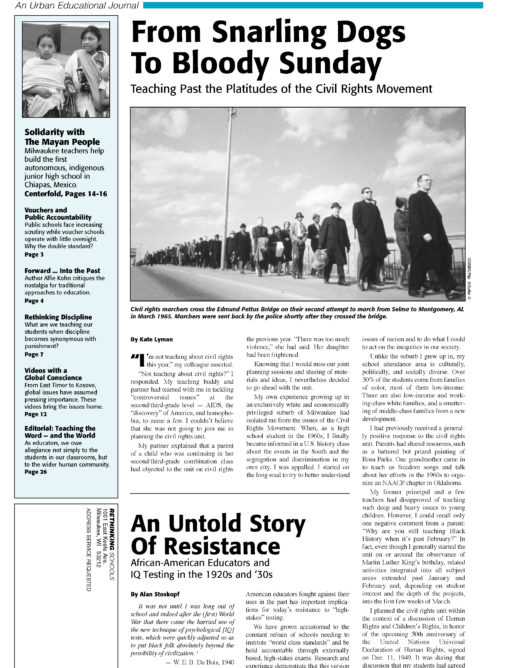Preview of Article:
California Lawsuit Notes Unequal Access to AP Courses
The State of California is denying its low-income and minority students equal access to education by depriving them of the Advanced Placement (AP) classes available in more affluent, suburban high schools, according to a recent lawsuit.
The class-action lawsuit notes that only three AP courses are offered at Inglewood High School in Los Angeles County, a school that is 97% African-American and Latino. In contrast, nearby Beverly Hills High School offers 14 AP courses; only 8.8% of its students are African-American or Latino.
The suit was filed in July by the American Civil Liberties Union (ACLU) of Southern California on behalf of four students at Inglewood High.
“This is a two-tiered educational system,” says Mark Rosenbaum, legal director of the local ACLU. “One is designed to intellectually challenge students and prepare them for college. The other offers least-common-denominator courses that disadvantage its most promising students.”
Students who take AP courses have a greater advantage when they apply to college. Students get five points for an A earned in an AP class, but only four points for an A earned in a regular class. The average high school grade-point-average of applicants to UCLA was 4.19 last year. If a school offers few or no AP classes, its students will be at a competitive disadvantage in college admissions.</p

